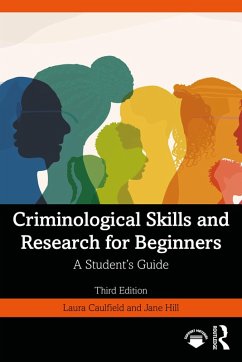This book presents:
. an examination of the theoretical, political and ethical debates in criminological research;
. a complete guide to planning criminological research, assisting student researchers in identifying their research questions, choosing their research methods and critiquing the available literature;
. guidance on the practicalities and processes of collecting data;
. contemporary examples and case studies;
. a discussion of the process of analysing data and writing up research.
New to the third edition is a brand new chapter on using online and social media data sources. This edition also includes new coverage of mixed-methods approaches, preparing a research proposal, a spotlight on researcher well-being and guidance on writing reflective essays.
Including an extensive glossary and online support material with extra examples, exercises and videos to further develop students' understanding, this book is essential reading for any undergraduate on a Criminological Research Methods or Research Skills course, or for anyone in need of practical guidance on any or all of the various stages involved in conducting thorough and effective criminological research.
Dieser Download kann aus rechtlichen Gründen nur mit Rechnungsadresse in A, B, BG, CY, CZ, D, DK, EW, E, FIN, F, GR, HR, H, IRL, I, LT, L, LR, M, NL, PL, P, R, S, SLO, SK ausgeliefert werden.









